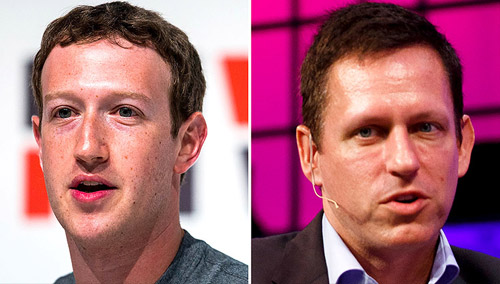FPI / May 4, 2020
Commentary by Jason Orestes
There has been great upheaval at Facebook over the last year.
Since 2019, five of the nine members of the board of directors have departed, with former American Express CEO Kenneth Chenault being the most recent to announce he’s leaving. He and Jeffrey Zients (a former Obama administration advisor) will both be gone in May; with Erskine Bowles (formerly of the Clinton administration), Susan Desmond-Hellmann (CEO of the Bill Gates Foundation), and Netflix CEO Reed Hastings (a prominent Democrat supporter) leaving last year.

There are only four remaining from Facebook’s board from 2019: Facebook COO Sheryl Sandberg, venture capitalist Marc Andreessen, venture capitalist Peter Thiel, and of course, Zuckerberg.
Facebook’s censorious behavior towards conservative speech is well-documented. However, somewhat stunningly, much of the internal discord that’s led to departures has been disagreements that Facebook isn’t censoring or spying enough on its users or advertisers.
Facebook’s (correct) decision to not be the arbiter of truth for political ads is where much of the acrimony stems; a policy originally advocated for and defended by Thiel. All board members that left have reportedly privately expressed frustrations: either predominantly centered around the company’s political and information policies, or a sense that their input was not being regarded in company decision making.
The value of the sole conservative voice on the board is quite apparent. Peter Thiel, a well-known libertarian-leaning Republican who backed Trump in 2016, is unquestionably the voice Zuckerberg trusts the most. Thiel was the very first investor in Facebook back in August 2004, and helped a then 21-year-old Zuckerberg navigate the business world and build Facebook to what it is today, almost sixteen years later.
To say they have a history would be an understatement. It’s Thiel who has encouraged Zuckerberg to hold his ground on the controversial political ad policy, and their reported alliance is likely the impetus behind the freeze out of sorts that other board members have been rumored to feel.
The board vacancies have been filled with members already quite close to Zuckerberg. Drew Houston, the CEO of Dropbox, has been friends with Zuckerberg since 2012, and Peggy Alford, who previously worked for Zuckerberg at the Chan Zuckerberg Initiative, are two of the newest members of the Facebook board.
This is likely to broaden Zuckerberg’s control, and by extension, Thiel’s. Hopefully this leads to an expansion of the policy of not policing political ads to not policing political language on the platform itself.
Despite the newfound lip-service dedication to free speech, Facebook still struggles with partisan censorship.
Recently, Facebook explicitly said it will help enforce unconstitutional coronavirus shelter-in-place orders — a more blatant subversion of freedom to assemble there has never been — by removing groups that attempt to organize protests or gatherings. To call this apolitical is completely disingenuous; the nature of the protests are liberty-minded and clearly spearheaded by conservatives and Trump supporters.
Facebook is still in the business of dictating language it deems appropriate, however Thiel’s influence has them trending in a better direction. The legal protections it is afforded as a platform, and not a publisher make this political patrolling of language illegal, and long overdue for change. As Thiel exerts greater influence on broader policies, it will hopefully lead to an improved market for free discourse on Facebook.
Jason Orestes (@market_noises) is a former Wall Street financial analyst who focuses on contemporary political developments affecting economics, markets, and culture. His work can also be found on financial publication TheStreet and Washington Examiner.
Intelligence Brief __________ Replace The Media
